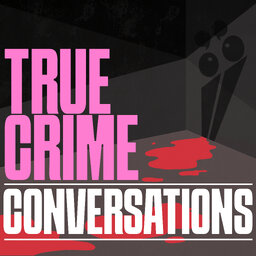Cold Cases & Serial Killers: Inside The World Of A Famous Homicide Prosecutor
From solving cold-cases to putting multiple serial-killers behind bars, Matt Murphy is one of America’s top homicide prosecutors. Many of his cases are known as some of America’s biggest crimes that have made headlines worldwide, including the Dirty John case that became a global media phenomenon.
In this episode, we dive deep into the cold-case of Cathy Torrez that Matt successfully prosecuted, as well as what makes a serial killer different from a “one-off” murderer, and the dangers of online dating for women.
After never losing a homicide case and spending 17 years assigned to the Homicide Unit of Orange County, California, Matt has released his first book: THE BOOK OF MURDER: A Prosecutor’s Journey Through Love and Death, available here.
THE END BITS
Find out more about Mamamia's charity partner RizeUp Australia here.
And if this episode has brought up anything for you or if you just feel like you need to speak to someone, call 1800 RESPECT (1800 737 732).
CREDITS
Guest: Matt Murphy
Host: Gemma Bath
Executive Producers: Liv Proud & Christel Cornilsen
Audio Producer: Scott Stronach
GET IN TOUCH:
Feedback? We’re listening! Email us at truecrime@mamamia.com.au or send us a voice note, and one of our Podcast Producers will come back to you ASAP.
If any of the contents in this episode have caused distress, know that there is help available via Lifeline on 13 11 14 or Beyond Blue on 1300 22 4636
Mamamia acknowledges the Traditional Owners of the Land we have recorded this podcast on, the Gadigal people of the Eora Nation. We pay our respects to their Elders past and present and extend that respect to all Aboriginal and Torres Strait Islander cultures.
In 1 playlist(s)
True Crime Conversations
True Crime Conversations explores the world’s most notorious crimes by speaking to the people who kn…Social links
Follow podcast
Recent clips

The Woman So Obsessed With Killers She Became One
59:09

The Husband Who Played Grieving Widower After Killing His Wife
43:41

What A Former DV Offender Wants You To Know
1:09:14
 True Crime Conversations
True Crime Conversations